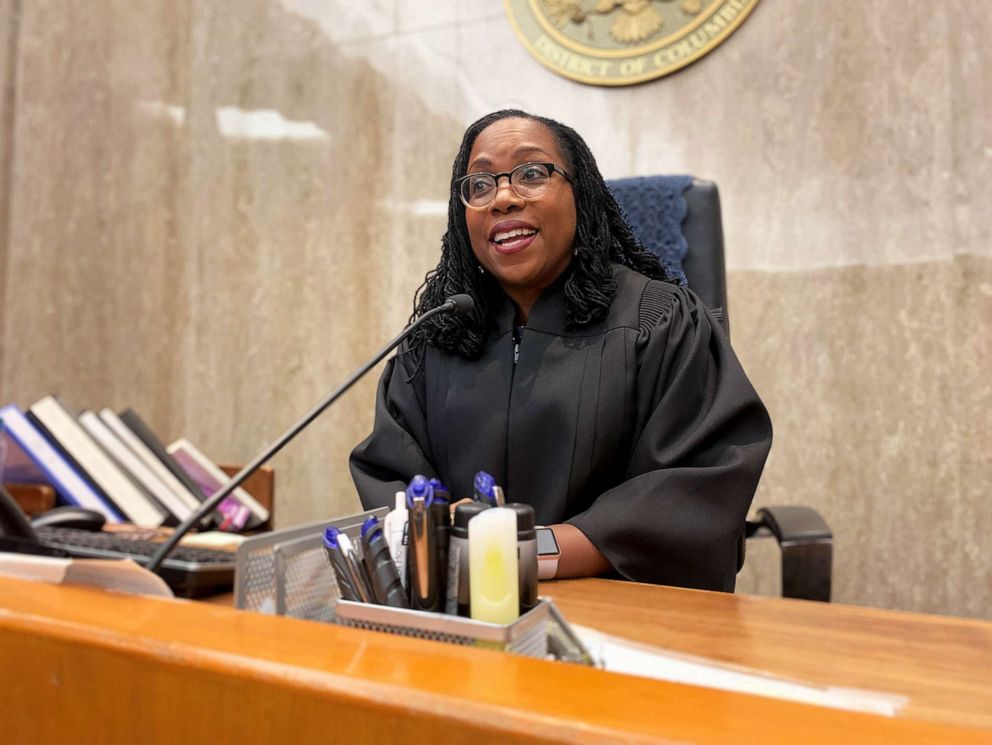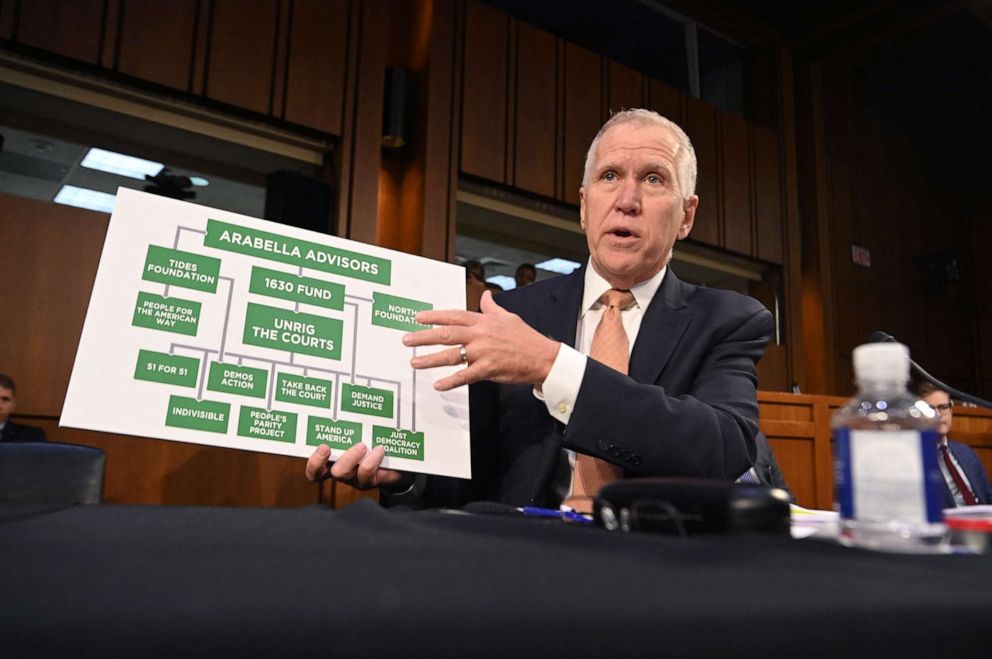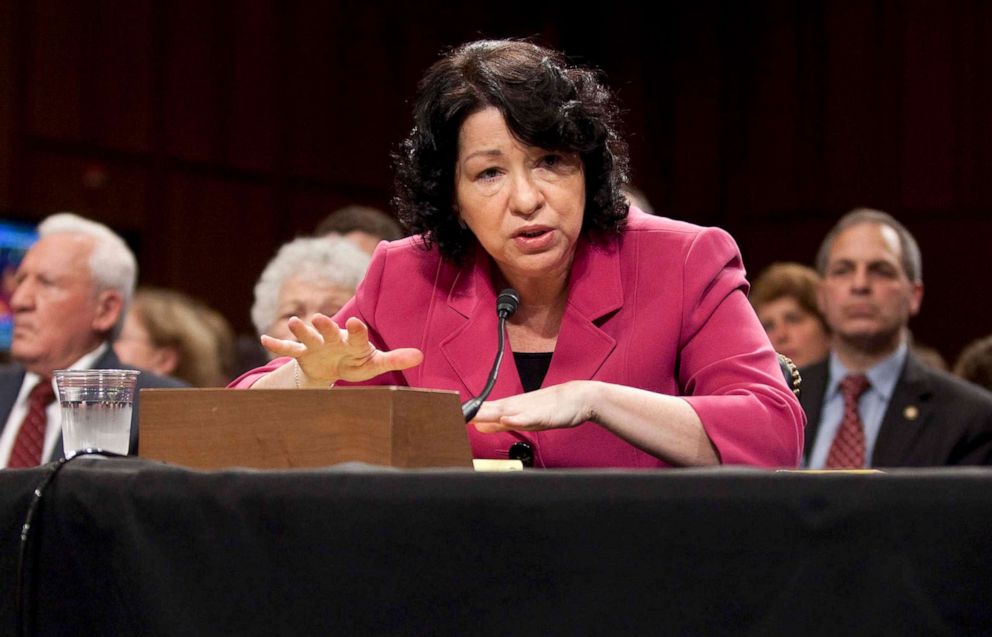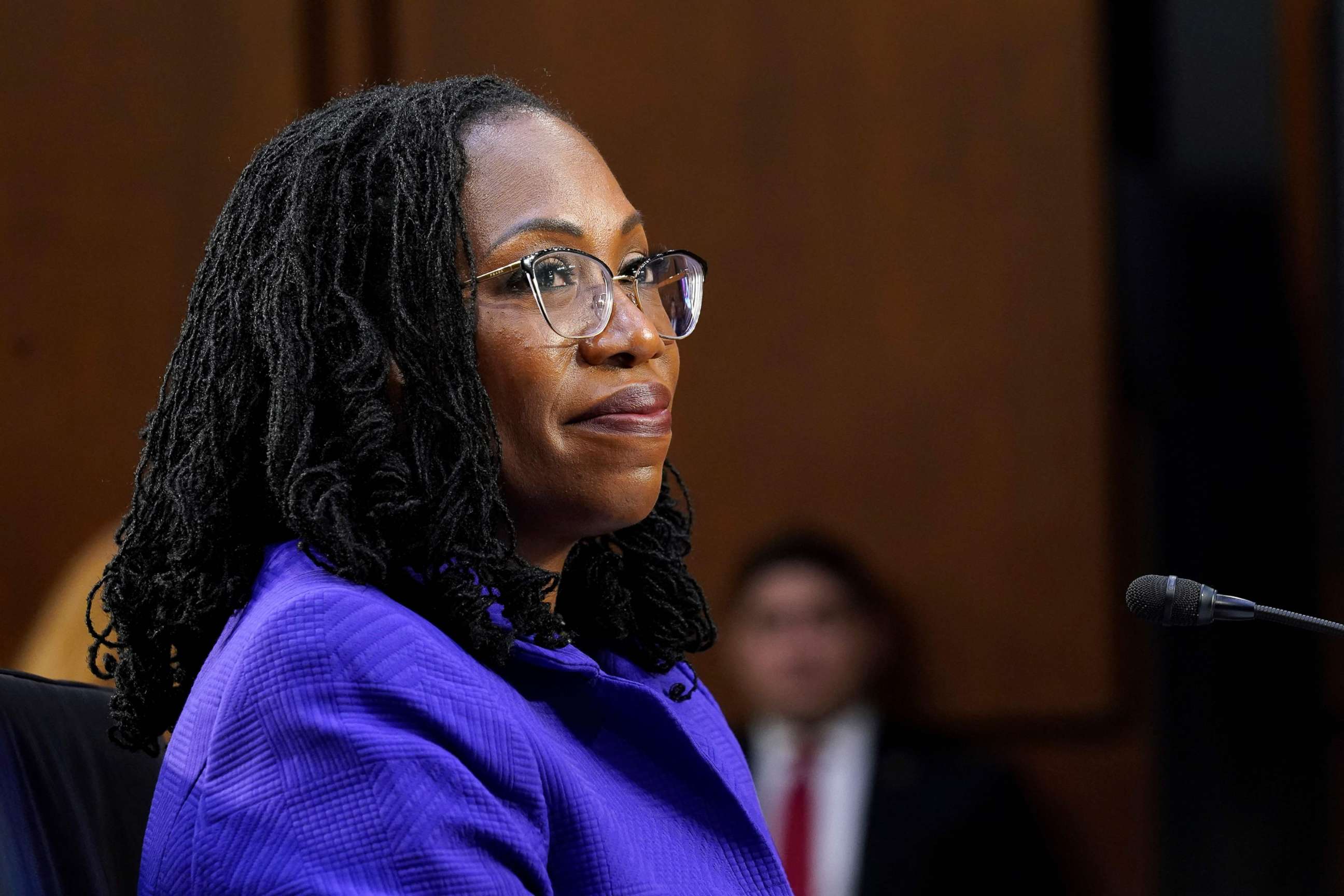Judge Jackson takes empathetic approach to impartiality: ANALYSIS
A clash over the role of empathy on court underpins a GOP critique of Jackson.
Supreme Court nominee Ketanji Brown Jackson never uttered the word 'empathy' in nearly 19 hours of testimony before the Senate Judiciary Committee this week, but she effectively made clear it's a hallmark of her style and an asset to judicial credibility.
"My professional experiences, including my work as a public defender and as a trial judge, have instilled in me the importance of having each litigant know that the judge in their case has heard them, whether or not their arguments prevail in court," she said.
Jackson also insisted it has no influence on her legal decisions.
"I am not importing my personal views or policy preferences," she told the committee. "The entire exercise is about trying to understand what those who created this policy or this law intended."

The defense of empathy and impartiality as fully compatible was a defining feature of Jackson's three days of historic testimony. It also opened a new chapter in a long-running political battle over the importance of a judge's ability to understand and acknowledge the experiences of opposing parties in a case.
What Judge Jackson and her supporters tout as a selling point, Republican critics call a major liability.
"I'm looking for a justice who will make decisions based on the law, not based on their preferences, not on empathy," Sen. Tom Cotton, R-Ark., told Jackson this week.
Republican Sen. Thom Tillis of North Carolina told her, "it seems as though you're a very kind person and there's at least a level of empathy that enters into your treatment of a defendant."
"Maybe beyond what some of us would be comfortable with with respect to administering justice," Tillis added.

The partisan clash over empathy -- which some have dubbed the "Empathy Wars" -- has its roots in a campaign promise by Barack Obama more than 15 years ago, when the then presidential candidate made the quality a key criteria for a high court nominee.
"We need somebody who's got the heart, the empathy, to recognize what it's like to be a young teenage mom. The empathy to understand what it's like to be poor, or African American, or gay, or disabled, or old," Obama said on a 2007 campaign stop. "And that's the criteria by which I'm going to be selecting my judges."
Republicans blasted the Obama standard as code for outright bias and weakness on crime, and it dominated the confirmation hearings of Obama high court picks Sonia Sotomayor and Elena Kagan, who were both pushed to disavow having "heart" on the bench.
"No sir," Sotomayor told Republican Sen. Jon Kyl at her hearing in 2009. "I don't wouldn't approach the issue of judging the way the president does. It's not the heart that compels conclusions in cases, it's the law."

Jackson made clear in her testimony that she agrees; but in subtle ways, she also advanced a belief that impartial judges can empathetically address both victims and defendants, even in cases over heinous crimes.
"My attempts to communicate directly with defendants is about public safety," Jackson told Tillis, who scrutinized her treatment of child porn offenders, "because most of the people who are incarcerated via the federal system, and even via the state system, will come out, will be a part of our communities again."
She said directly and holistically addressing a defendant's experience is aimed at getting the offender to accept responsibility and see more fully the impact of their crimes.
"I was the one in my sentencing practices who explained to those things in an interest of furthering Congress's direction that we're supposed to be sentencing people so that they can ultimately be rehabilitated to the benefit of society as a whole," Jackson said.
Most Republicans were unmoved.
"I just don't understand why after saying this and believing this, you could give this guy three months in prison," said Sen. Josh Hawley, R-Missouri, who spent the entirety of his time questioning Jackson's below-guidelines sentence in a child porn case involving an 18-year-old offender. "Do you have anything to add?"
"No, senator," Jackson shot back.

Having empathy on the high court was once widely considered a vaunted quality. Justice Stephen Breyer, whom Jackson would succeed, called empathy "a crucial quality [to have] in a judge."
Justice Anthony Kennedy, a Ronald Reagan appointee, said in 2013 that empathy requires "caution" but that cases are "stories about real people" and that judges must understand "real people are going to be bound by what you do."
Some legal scholars who have studied the impact of empathy on court decision making have found it as a necessary factor for avoiding partiality.
"Empathy matters for judging because judges must expressly and consciously take into account the full positions of the parties, from where the parties stand, to avoid making unconscious and biased judgments," wrote Rebecca K. Lee in a 2014 Cincinnati Law Review article "Judging Judges: Empathy as the Litmus Test for Impartiality."
But other jurists take a broader view.
"Wisdom, as opposed to the more narrow empathy, is a foundational requirement throughout our legal system," said Sarah Isgur, a former Justice Department lawyer and ABC News legal analyst.
"A judicial philosophy may have empathy as one element of it, but it strives to treat similar situations alike by creating a framework to determine which cases are similar and which aren't," Isgur said. "Judge Jackson was never able to articulate a judicial philosophy and without one, empathy can actually be the antithesis of justice."
In a letter to the Judiciary Committee, more than two dozen conservative lawyers who served in GOP administrations or hold right-leaning views hailed Jackson this week, in part because her more than 500 opinions showed an "even-handed" awareness of both sides.
"They have also demonstrated another attribute essential for a judge -- a sense of empathy for the situations of others," the group wrote.
As Jackson heads toward likely confirmation as the nation's first Black woman justice, her view of the law -- and of empathy -- could be poised shape the high court for years to come.
"In my capacity as a justice, I would do what I've done for the past decade, which is to rule from a position of neutrality, to look carefully at the facts and the circumstances of every case, without any agendas, without any attempt to push the law in one direction or the other," Jackson said, "and to render rulings that I believe and that I hope that people would have confidence in."




